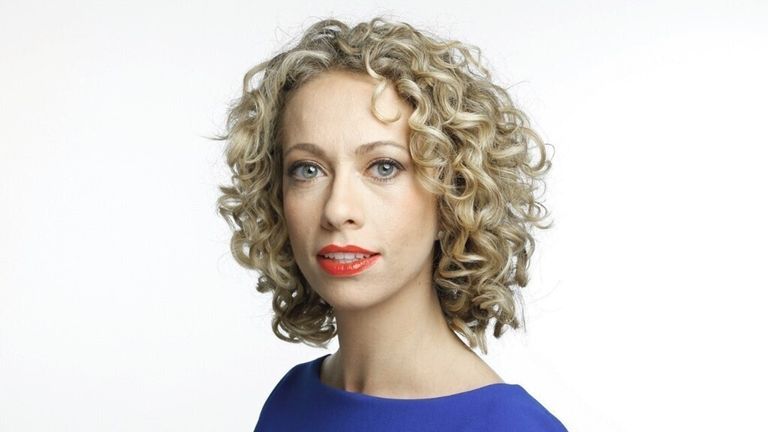Should I try to pay off my student loan early?
Most people who went to university in the last few years have been landed with a pretty hefty student loan. So it’s no surprise that some are questioning whether to try getting the debt down.
Thomas, a Sky News reader, asked our personal finance expert Gemma Godfrey whether he should start making extra payments each month now that interest rates are rising. Here’s what she said…
There are some important things to consider when it comes to making extra payments to pay off student loans.First of all, paying down these loans early is usually less important than paying off high-interest debt, having an emergency pot of cash to cover at least three months of living expenses, and saving for retirement.
The interest rate on student loans has been capped at 6.3% this autumn, after being predicted to rise to 12%, and will be reviewed again in December. Changes in the interest rate on a student loan doesn’t change the amount repaid each month, only the total amount owed over the life of the loan.This means it’s likely that it’s those who are set to pay off their loans in full, and usually high-earners, who will be impacted meaningfully.
More on Cost Of Living
Related Topics:
Paying off the loan earlier can make it cheaper in the long run as there’s less time to accumulate interest. Nevertheless, it’s also worth keeping in mind that student loans are currently usually written off after 30 years, regardless of the amount still owed.However, there are plans to potentially increase this to 40 years. Also, while there’s no penalty for making extra repayments to reduce a student loan, these payments are not refundable in case of financial difficulties later.
Advertisement
Gemma is a business advisor, finance expert and TV host, an ambassador for the charity Surviving Economic Abuse, and a former boardroom adviser to Arnold Schwarzenegger on The Apprentice.

Most people who went to university in the last few years have been landed with a pretty hefty student loan.
So it’s no surprise that some are questioning whether to try getting the debt down.
Thomas, a Sky News reader, asked our personal finance expert Gemma Godfrey whether he should start making extra payments each month now that interest rates are rising. Here’s what she said…
There are some important things to consider when it comes to making extra payments to pay off student loans.
First of all, paying down these loans early is usually less important than paying off high-interest debt, having an emergency pot of cash to cover at least three months of living expenses, and saving for retirement.
The interest rate on student loans has been capped at 6.3% this autumn, after being predicted to rise to 12%, and will be reviewed again in December. Changes in the interest rate on a student loan doesn’t change the amount repaid each month, only the total amount owed over the life of the loan.
This means it’s likely that it’s those who are set to pay off their loans in full, and usually high-earners, who will be impacted meaningfully.
Paying off the loan earlier can make it cheaper in the long run as there’s less time to accumulate interest. Nevertheless, it’s also worth keeping in mind that student loans are currently usually written off after 30 years, regardless of the amount still owed.
However, there are plans to potentially increase this to 40 years. Also, while there’s no penalty for making extra repayments to reduce a student loan, these payments are not refundable in case of financial difficulties later.
Gemma is a business advisor, finance expert and TV host, an ambassador for the charity Surviving Economic Abuse, and a former boardroom adviser to Arnold Schwarzenegger on The Apprentice.


